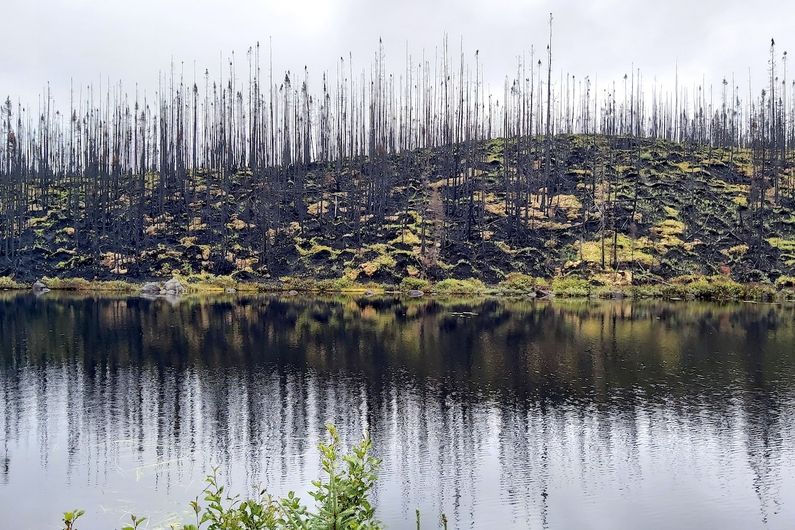Lake water quality at risk
- UdeMNouvelles
08/30/2023
- Béatrice St-Cyr-Leroux
Forest fires make the water in lakes whose catchment areas have been burnt murkier and also richer in nutrients, a Canada-U.S. research team has found.
More than two million hectares of Quebec forest reduced to ashes. Yellowknife evacuated. New York City under a thick blanket of orange smoke. Greek islands ravaged. More than a hundred fatalities on the Hawaiian island of Maui.
The summer of 2023 has been sadly marked by the many forest fires that have raged across the planet. Exacerbated by climate change and human activity, these events are increasingly becoming part of the global landscape.
It's well-known that these fires have a negative impact on air quality, fine particles and greenhouse gases are released into the atmosphere. But what about water quality in the affected areas, specifically in the lakes nearby?
A Canadian-American team involving Jean-François Lapierre, a professor in the Department of Biological Sciences at Université de Montréal, along with his master's student Mathilde Bélair, went looking for answers to that question.
The results of their work is published this month in the journal Geophysical Research Letters.
Led by researchers at the University of Minnesota, the scientists took water samples from 30 lakes (15 in burnt areas and 15 not) every month for a year after the August 2021 fire near Greenwood Lake, Minn., a region rich in lakes where forest fires are historically frequent.
The researchers observed a significant increase in concentrations of nitrogen, phosphorus, organic carbon and suspended matter in the 'burnt' lakes, as well as a reduction in water clarity and pH. These changes were proportional to the severity and surface area of the fires.
Causes and consequences yet to be defined
For the moment, the scientists are not certain what post-fire phenomenon is causing these disturbances.
It could simply be that there's been an increase in water runoff due to a reduction in evapotranspiration, in the absorption of nutrients by plants, in the interception of precipitation by the tree canopy and in the absorption of water by the soil.
"After a fire, organic matter is less well retained in the soil by the vegetation and is therefore leached more towards the lakes," said Lapierre. "Fortunately, if this hypothesis proves to be true, we can assume that the effects of the fires will fade as the trees and plants grow back."
A reduction in water clarity and an increase in nutrients are not harmful in themselves, he added. But over the longer term, if the water in 'burnt' lakes is chlorinated for human consumption and has a high concentration of carbon, the two elements could interact.
The loss of water transparency could also influence the temperature and oxygenation of the different layers of water, subsequently affecting the how much algae and cyanobacteria are produced.
"Some studies suggest that changes in water transparency and nutrient concentration could also increase the biomagnification of metals from phytoplankton to fish," said Lapierre.
Potentially wider effects?
He and Bélair are now turning their gaze closer to home, to see if lakes in Quebec are meeting a similar fate after forest fires here. While they expect comparable results in terms of water clarity and nutrients, the team also wants to investigate the carbon cycle further.
"We want to know what happens to the carbon contained in the soil after a fire: does it return to the atmosphere in the form of gas, or is it trapped in sediments in the lakes?" said Lapierre.
"In short, is there a massive loss of carbon or a transfer of carbon from the terrestrial environment to the aquatic environment?"
Forest fires, he noted, expel billions of tonnes of CO2 by devouring large quantities of organic matter. If lakes do not absorb carbon from soils, then the carbon footprint of forest fires could be even more serious than anticipated.















